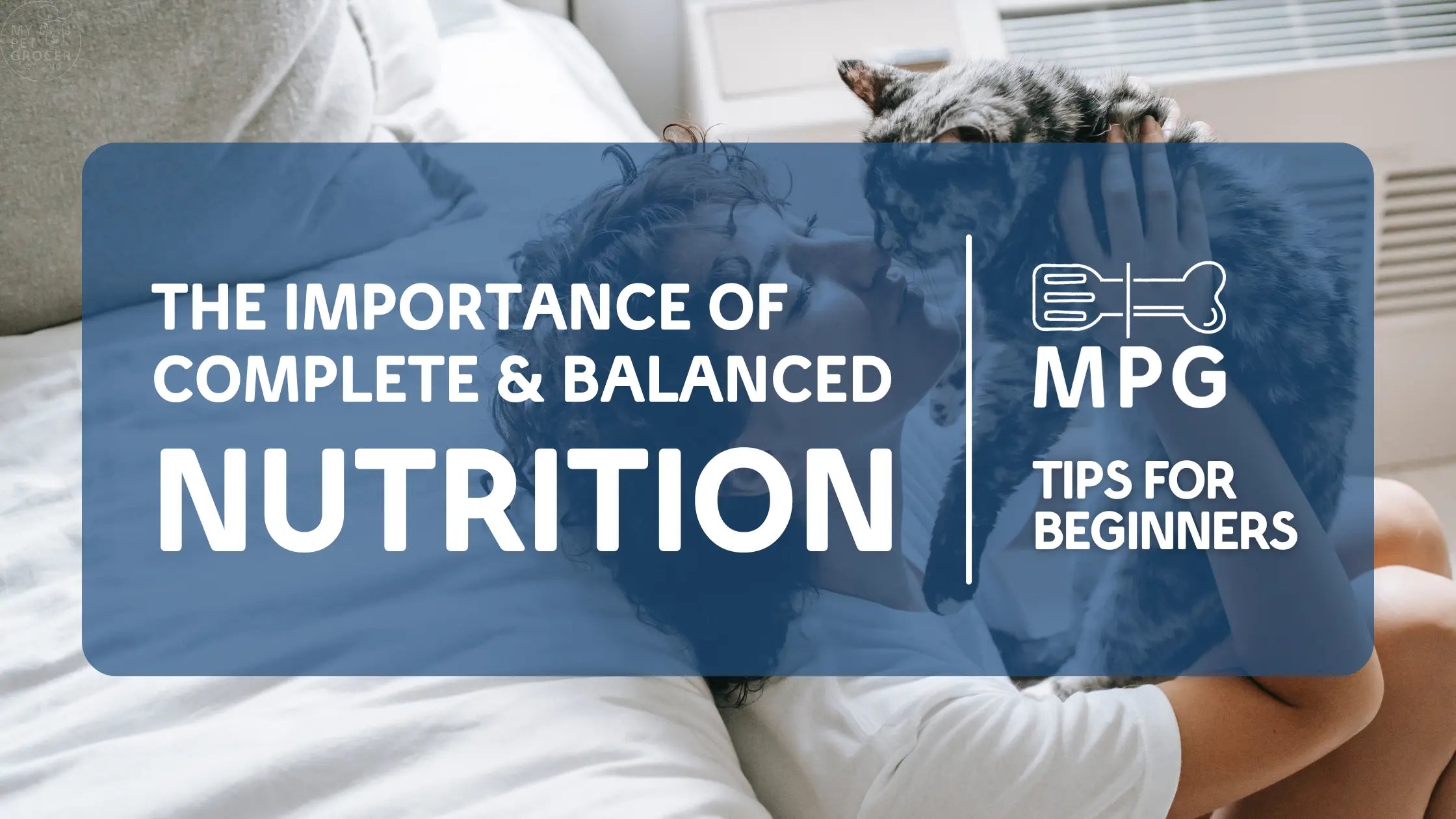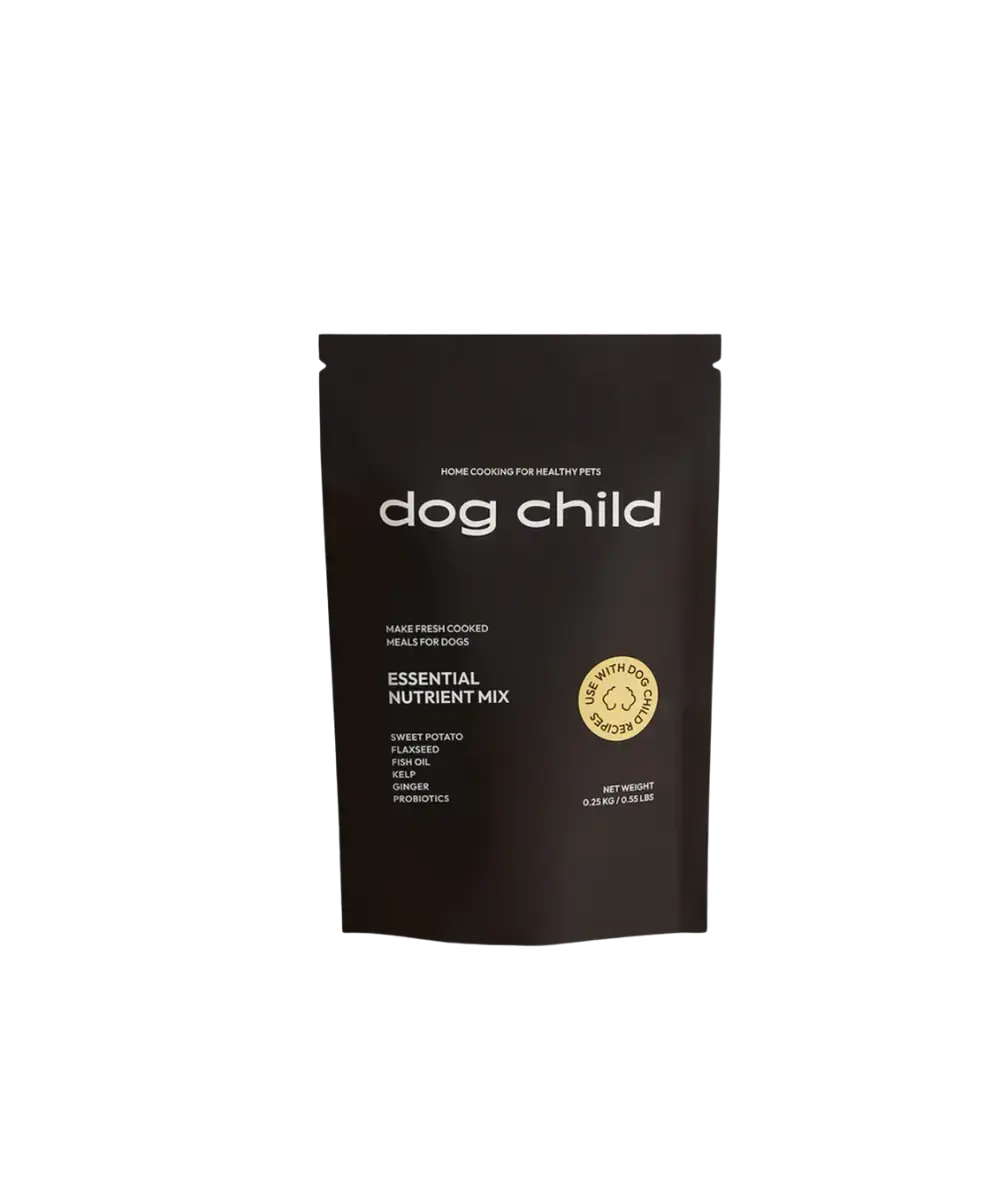
Why Is Complete and Balanced Nutrition So Important?
Our pets light up our lives with their wagging tails, purrfect snuggles, and endless playtime energy. But just like us, their health and happiness depend on good food – the kind that fuels their adventures and keeps them healthy from nose to tail. That's where complete and balanced diets come in!
1. Unleash the inner athlete:
Just like we wouldn't run a marathon on chips and soda, our pets need the right nutrients for their daily zoomies. Complete and balanced diets pack the protein punch needed for strong, lean muscles, the healthy fats for sustained energy, and the vitamins and minerals that keep their bones, joints, and everything else in tip-top shape.
2. Shine bright like a diamond:
Have you ever seen a pet with a dull, flaky coat or itchy skin? Those could be signs of dietary imbalances. Complete and balanced diets contain the essential nutrients that keep your pet's fur gleaming, skin healthy, and eyes sparkling. It is health from the inside out.
3. Boost their immune system:
Complete and balanced meals provide the vitamins and minerals needed for a robust immune system, so your pet is ready to tackle anything from everyday environmental challenges to pesky seasonal allergies.
Remember: Not all food is created equal. Opt for complete and balanced diets formulated with quality ingredients for your pet's age, breed, and activity level. Homecooked meals are a great way to control exactly what your pet is eating; just be sure to consult your veterinarian first. They will help you make sure your pet is getting everything they need for a long and happy life with you.
So what happens when your pet doesn't get a complete and balanced diet?
Unfortunately, the consequences can be quite serious. Here are some potential risks from nutrient deficiencies:
- Digestive issues: Diarrhea, vomiting, and constipation.
- Skin and coat problems: Itchy skin, dull fur, and hair loss.
- Muscle and bone problems: Weakened muscles, bone deformities, and joint pain.
- Weakened immune system: Increased susceptibility to illnesses and infections.
- Organ damage: In severe cases, long-term deficiencies can damage organs like the liver and kidneys.
- Obesity: Unbalanced diets are often high in calories and unhealthy fats, contributing to weight gain and its associated health risks like diabetes, heart disease, and joint problems.
- Dental problems: Poor diets can lead to plaque buildup and tartar formation, increasing the risk of dental disease.
Don't wait until you see signs of trouble. Be proactive about your pet’s health and make nutrition a priority in their healthcare plan.
Bonus tip: Don't forget fresh, clean water! Water is crucial for hydration and digestion and is an essential part of your pet's balanced lifestyle, so make sure they always have access to it.
Happy cooking!


